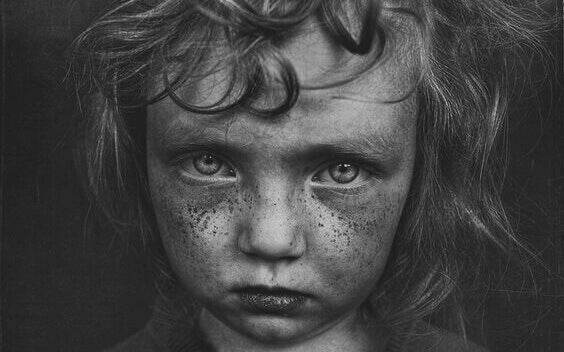Childhood is a decisive stage of life. The physical and psychological impressions left at this stage of life leave permanent marks on the brain, so childhood traumas completely characterize personality and its influence extends over time.
This is not to say that they cannot be overcome or, at worst, cannot reasonably be overcome. Having a difficult childhood doesn’t mean you can’t have a full life; however, this usually requires therapy or a deep professional. Development processes.
- Some characteristics indicate the presence of childhood trauma that has not been overcome.
- If you have had a difficult childhood worth reassessing if any of these characteristics are present in your way of being.
- These are great indicators to show that it is time to do something for yourself.
“Trauma does not cause death, but life. It’s possible to die without knowing. Birth involves the trauma of understanding. -Richard Matheson-
Inhibition has to do with the difficulty of being present in the world, even in life itself. This is the case for people who avoid saying what they think or doing what they want, are afraid to do something or just can’t think of anything.
Childhood trauma can make a person feel inhibited in a variety of situations; What’s left, however, is hermetism. Isolation Great difficulty connecting with others and feeling afraid of people.
There are people who are introverted and therefore unfaithful to social situations, however, they have no problem saying aloud what they think or feel and act autonomously. On the other hand, when there are childhood traumas that have not been overcome, the person wants to go unnoticed, not get attention.
There is usually a build-up of anger in people who have not overcome their childhood trauma, not necessarily violent people. In fact, they tend to be less tolerant and inclined to react aggressively, it’s as if they’re still about to explode, even if they don’t.
Irrascibility is also felt in the way objects are handled or in the tone of the voice, there is tension in gestures and in the way of speaking, there is anger in the way things are done, even if they are not explicitly aggressive.
People who have not overcome their childhood traumas also often have difficulty ingesting themselves, or feeling much inferior or superior to others, if they feel superior this only happens in appearances, a mechanism to compensate for their poor opinion of themselves.
Therefore, it is common for them to reject the praise of others and think that they are never good enough. So, it bothers them that someone tells them to excel in certain areas, they think it’s a scam or a joke. They can’t understand how anyone has admiration for them when they hate each other.
A person who has suffered child trauma feels that everything he says or does can annoy others, so he often apologizes. He apologizes for things you shouldn’t ask for, he apologizes when he’s going to talk, as if he doesn’t have the right to do it, and also when they come in or out of somewhere, etc.
In this type of action, it is possible to see the traces of a restrictive creation, perhaps humiliating and with few expressions of affection, these people feel that they must apologize for any action that shows their presence in the world. of the great effects of childhood trauma that has not been overcome.
Traumatic childhood usually develops in very conflicted families. A context in which disagreements and aggressions were the norm. Any word or action can trigger a number of problems. Therefore, the person can grow up with fear or obsession with conflict.
People who fear conflict will flee under any circumstances, they are even able to overcome their own beliefs to avoid contradictions, people who cling to conflict make everything a problem, they are stuck in repeating the behaviors they learned as children.
Childhood traumas don’t resolve on their own, or at least rarely do. You have to work with them so they don’t end up invading personality and turning life into hell. There’s still something we’ve experienced over the years. But when we’re adults, we can shape and resolve childhood trauma in ways that don’t harm us.

